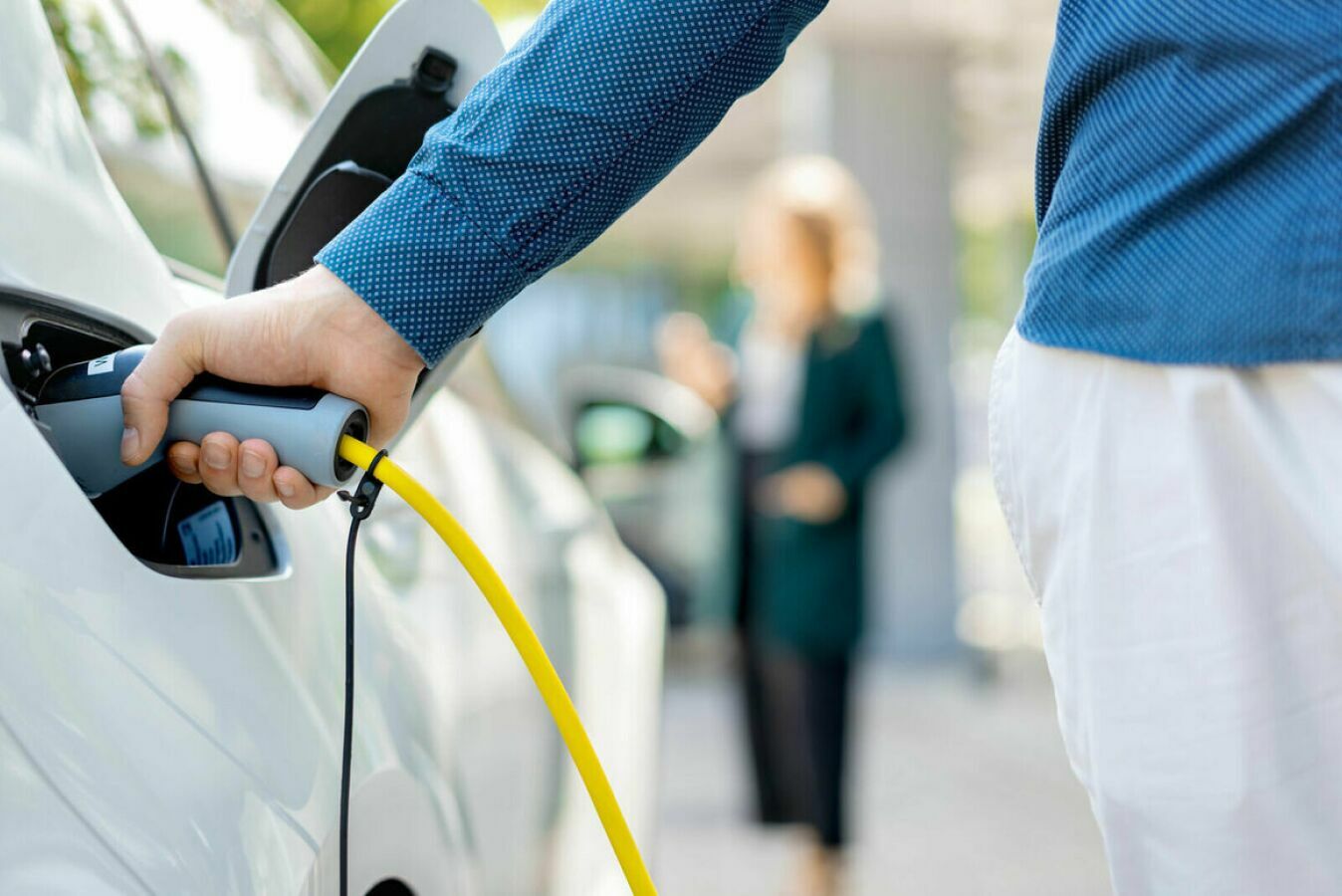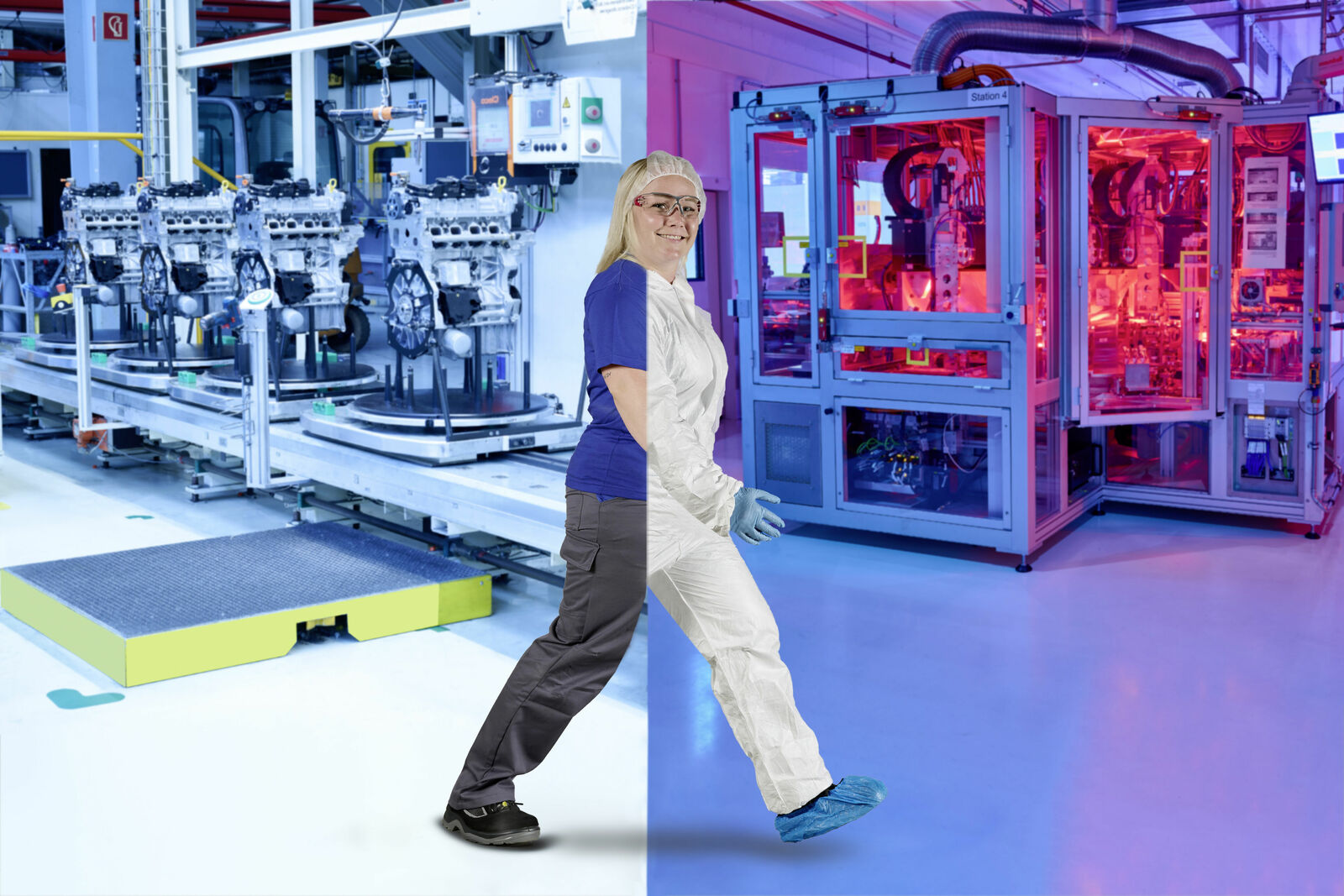Focus Topics

As we transition from automotive manufacturer to mobility group, we are positioning ourselves for the future.
Our strategy defines a total of six focus topics and five additional ESG topics for the area of sustainability and ESG.

Decarbonization
Volkswagen wants to become a net carbon-neutral company by 2050. We have set an intermediate goal for ourselves along the way: By 2030, we want to reduce the carbon footprint of our passenger cars and light commercial vehicles by 30% per vehicle (compared with 2018). We want to achieve this goal purely through reduction measures and switching to renewable energies – i.e., without any offset measures. In addition to the Group’s electric offensive, we are concentrating to a greater extent on integrating renewably generated electricity in the use phase and switching the entire power supply for our plants to renewable energy.
Circular Economy
The increasing closed-loop circulation of materials helps to reduce the negative environmental impact of resource consumption and counteract the shortage of raw materials. This makes it a key sustainability topic for the Volkswagen Group. At the same time, this development offers us many opportunities: It necessitates innovation in the areas of material design, recycling technologies and business models. Another important driver of the circular economy is the ongoing decarbonization of the Volkswagen Group: The growing use of secondary materials and the establishment of closed loops of materials can help to significantly reduce our CO2 emissions.


People in the Transformation
Digitalization and electrification as drivers of future technological development also increase knowledge intensity in the sector, with a focus on coding, programming and engineering activities. This transition will be completed within a decade. This means the whole automotive world is currently in a transformation corridor, at the end of which the role of automotive manufacturers and their suppliers as employers and the qualifications needed in the industry will be radically different from at the start of this process. With our Group People Strategy, we are setting a course to make this change employee-friendly and socially acceptable.
Diversity
Whether age, gender, origin or sexual orientation, diversity has many dimensions. At Volkswagen, we make room for this diversity and see our employees’ differences as an asset. The basis for this can be open, respectful communication, inspiring leadership and a work culture based on equal opportunities and partnership. In this way, we want to ensure that all employees feel seen for their individuality and can realize their full potential. We are convinced that diversity is a source of new value creation and competitiveness and a decisive factor for the Group’s success – particularly in times of skills shortages.


Integrity
Integrity and compliance have a high priority in the Volkswagen Group. They create the basis for correct and values-based conduct. We gear our rules, processes and corporate culture to enabling all employees to act with integrity and in compliance with the rules at all times. This includes doing the right thing on the basis of your own convictions – regardless of economic, time or social pressures.
Supply Chain and Human Rights
The Volkswagen Group pursues the vision of enabling sustainable mobility for generations to come. This includes living up to our legal, social and environmental responsibility not just in our own Group but also in our supply chains. It includes more than 63,000 supplier sites in more than 96 countries around the world. Our activities may have negative effects on our environment and on people in our supply chain. At the same time, our size and position in the market also mean there are opportunities to achieve environmental and social improvements in our suppliers’ countries and sites.

Sustainability in the Supply Chain
The Volkswagen Group takes its corporate responsibility for human rights and the environment very seriously. Our goal is to create responsible supply chains for future generations.

Further ESG topics
In addition to the six focus topics, the Volkswagen Group has identified five other topics that are important to us in the area of sustainability and ESG: Biodiversity, Advocacy, Responsible Marketing, IT Security, Product Quality and Safety.









